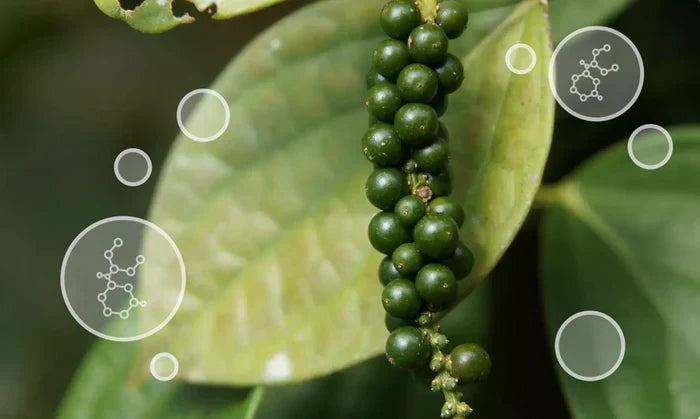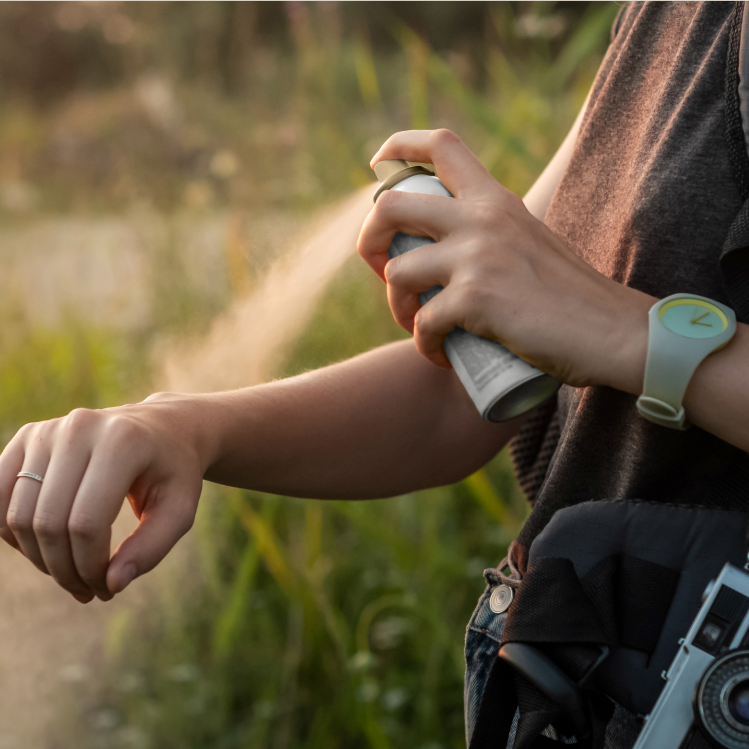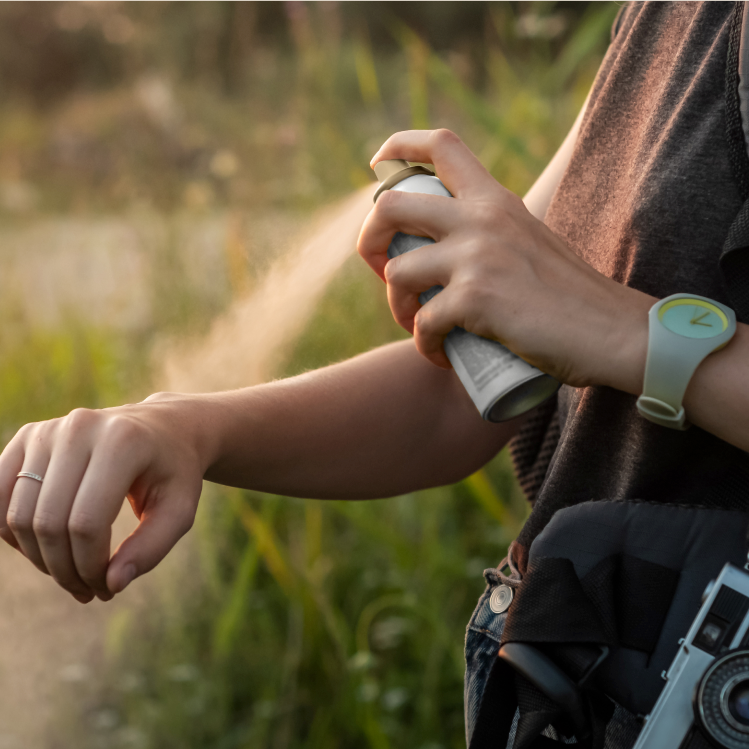Mosquito Repellent Guide: DEET vs. Picaridin
- Grand Tongo Admin
- April 20, 22
DEET vs. Picaridin
Both Picaridin and DEET have been shown to be effective against mosquitoes that carry West Nile Virus (WNV), Zika virus, Dengue fever virus (DFV), Chikungunya virus (CHKV), yellow fever virus, and malaria parasites—but there are some key differences between these compounds that may make one more suitable than the other for your needs.
DEET (N, N-diethyl-m-toluamide) is an active ingredient in many mosquito repellents. It works by blocking the mosquitoes’ ability to sense your skin. Picaridin is an- other active ingredient used in insect repellents and is considered as effective as DEET at repelling mosquitoes.
Picaridin is a naturally-inspired, synthetic compound based on the black pepper plant. It was developed by Bayer as a safer alternative to DEET because it has low toxicity and few side effects when used appropriately. While both products are equally effective, Picaridin-based mosquito repellents are as effective as DEET products in protecting you from mosquitoes and ticks. One important difference is that Picaridin can be used on children over two months old. DEET cannot due to its toxicity.
Picaridin has also been found less likely than DEET products to cause irritation, burning, or stinging if exposed directly to bare skin (though it may still cause some irritation if you get it on your eyes).
Long-term effects on brain development.
Which one is a better choice for me?
Both DEET and picaridin are effective mosquito repellents, but they work differently.
Picaridin is more pleasant to use than DEET because it smells better, doesn’t irritate your skin, and doesn’t cause any issues with clothes or gear.
On the other hand, labeled as an insecticide, research has shown that DEET can be toxic to people in high doses. Picaridin does not have this risk associated with it, making it a safe choice in the long term.
If you want a mosquito repellent that works quickly without being harmful to humans and the environment, then picaridin is the ideal choice.
How do they work?
DEET and picaridin both work by preventing mosquitoes from detecting carbon dioxide, lactic acid, and other chemicals that humans emit. These repellents are not in- tended to kill the mosquitoes: instead, they make it harder for them to find you.
DEET is made from a synthetic chemical called diethyltoluamide (DT). DEET works by interfering with the mosquito’s ability to detect carbon dioxide - one of the chemicals that humans emit when we breathe out or sweat. naturally-inspired, synthetic
Picaridin is made from a synthetic chemical called piperidine. It works by interfering with another molecule in the mosquito’s nose called V1R pheromone receptor pro- tein (VR1), which detects certain odors such as sweat and lactic acid - the chemicals humans emit when we breathe out or sweat.
Which one is better for people with sensitive skin?
If you have sensitive skin, you’ll want to choose a repellent with Picaridin. The Centers for Disease Control and Prevention (CDC) recommends that people concerned about the risk of DEET exposure use Picaridin instead.
Picaridin is less likely to cause a rash or skin irritation than DEET. It’s also more effective at repelling mosquitoes than other natural options and has an added benefit of a more pleasant smell.
Is Picaridin a better mosquito repellent for kids than DEET?
DEET and Picaridin are the two most common active ingredients in insect repellents. Both have generally been proven safe and effective, but they’re not created equal.
If you’re looking for a mosquito repellent safe to use on children, picaridin may be your best bet. The CDC reports that while there are fewer studies of Picaridin com- pared with DEET, Picaridin is less likely to cause irritation to the sensitive eyes, nose, and throat. It’s also less likely to cause skin irritation or allergic reactions.
While both DEET and Picaridin can cause headaches in some people (especially when used in high concentrations), Picaridin is likely safer than DEET for children be- cause it doesn’t appear to have any long-term effects on brain development.
Which one is a better choice for me?
Both DEET and Picaridin are effective mosquito repellents, but they work differently.
Picaridin is more pleasant to use than DEET because it smells better, doesn’t irritate your skin, and doesn’t cause any issues with clothes or gear.
On the other hand, labeled as an insecticide, research has shown that DEET can be toxic to people in high doses. Picaridin does not have this risk associated with it, making it a safe choice in the long term.
If you want a mosquito repellent that works quickly without being harmful to humans and the environment, then Picaridin is an ideal choice for you and your family!






